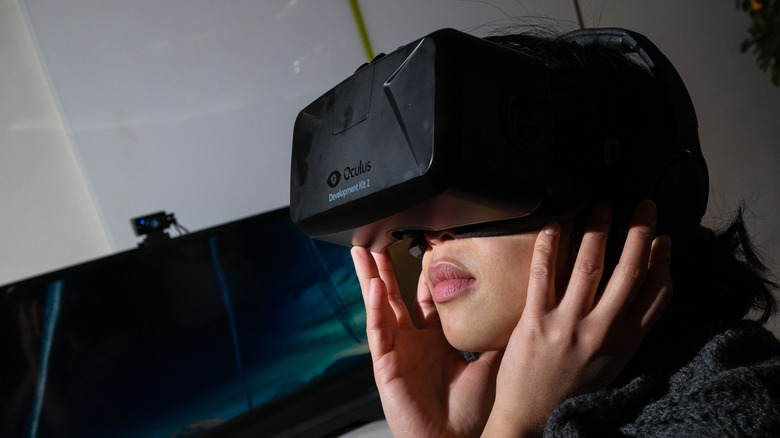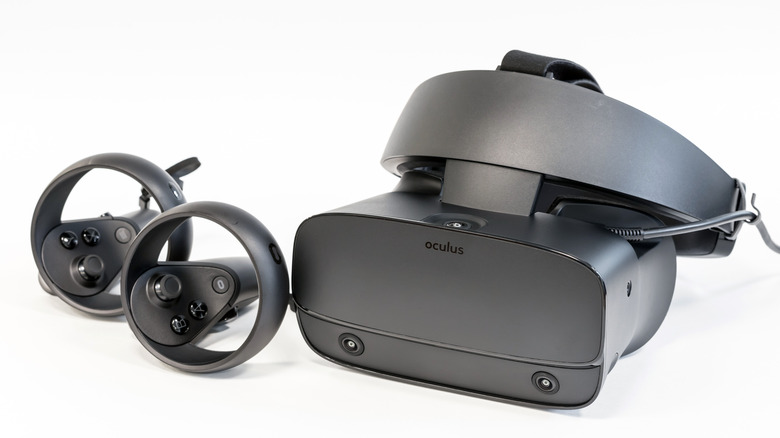Why Meta Discontinued The Oculus Rift
The Oculus Rift changed technology forever, and helped pave the way for Meta's VR successes in the Quest headsets. When it was first released in 2013, the then-cutting-edge Oculus Rift DK1 was not the first-ever VR headset, but it was the first widely available VR system that was affordable and high quality. It not only helped turn VR from a sci-fi concept to something more accessible, but kickstarted a new era of consumer VR systems.
Indeed, the Oculus Rift helped bring what SlashGear once called "the future of gaming" to the masses. After years of only development kits available, the first consumer release of the Oculus Rift came out in 2016. Still, as popular and groundbreaking as the system was, the headset didn't last long. That's because the Oculus Rift was discontinued back in 2020 after just four years, marking the end of an era.
But why was such a successful and innovative virtual reality system discontinued?
Meta decided to retire the brand's old name
The simplest answer as to why the Oculus Rift was discontinued is that the existing Oculus Quest (now Meta Quest) was a better headset at the time. For one, it was a standalone device, meaning it didn't require a powerful PC to function. It was also cheaper than the Rift S, with the Oculus Quest 2 releasing at a starting price of $299, compared to the $399 price tag of the Rift S. This helped the Quest 2 become a big sales success, as the VR system quickly accounted for the majority of VR headset sales upon its release — far outperforming the Rift S.
When the announcement was made that the Rift would be discontinued, Andrew Bosworth, Meta's VP of AR/VR, wrote that the decision came from a desire to simplify the brand. Facebook had initially acquired Oculus in 2014, and in 2022, the Oculus brand became Meta in 2022 alongside the former Facebook company's entire rebrand. "We all have a strong attachment to the Oculus brand, and this was a difficult decision to make," Bosworth wrote in 2021. "While we're retiring the name, I can assure that the original Oculus vision remains deeply embedded in how Meta will continue to drive mass adoption for VR today."
This decision worked out for Oculus and Meta. The Meta Quest 2 was a better product than its predecessors, while the Meta Quest 3 is building on that foundation to deliver a more powerful VR system for consumers.

